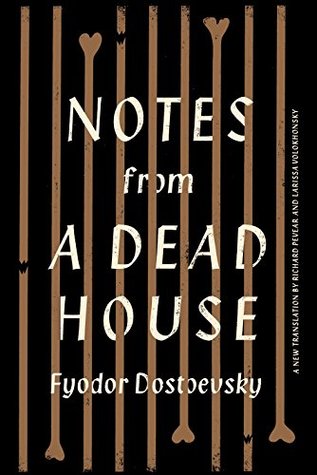More on this book
Community
Kindle Notes & Highlights
Read between
April 20 - April 26, 2024
whenever I came back from work, the first thing I did, before going anywhere, was to hurry behind the barracks with Sharik leaping ahead of me and squealing for joy, to hug his head and kiss it, kiss it, with some sort of sweet and at the same time tormentingly bitter feeling wringing my heart.
I remember it was even pleasant for me to think, as if flaunting my own hurt to myself, that now I had one being left in the whole world who loved me and was attached to me, my friend, my only friend—my faithful dog Sharik.
A free man has hopes, of course (for instance, for a change in his lot, for success in some undertaking), but he lives, he acts; the whirl of real life carries him away entirely. Not so the inmate. Here, let’s say, there is also life—the life of prison, of hard labor; but whoever the convict may be and whatever his term of punishment, he is decisively, instinctively, unable to take his lot as something absolute, definitive, as part of real life.
“We’ve still got a life to live!” he thinks and stubbornly drives away all doubts and other vexing thoughts.
He knows himself that those who have been chained up are kept in prison forever, till they die, and in fetters. He knows it, and still he wants terribly to finish his term on the chain.
Damn... This hope of life is definitely a fourth theme. And it is not so just for this book only but indeed for all of his post siberia works
“I want to live, and I will live.”
Reason holds sway over people like Petrov only until they want something. Then nothing on earth can hinder their desire.
“Eh, really!” he may have thought, laying hands on my goods, “what sort of man is he, if he can’t even protect his own goods!” Yet that seems to be what he loved me for.
A man may not be a murderer, but he may be more horrible than another who got there for six murders.
As if, having leaped over a line that was sacred to him, he begins to admire the fact that nothing is holy for him anymore; as if he feels an urge to leap over all legality and authority at once, and to revel in the most boundless and unbridled freedom, to revel in this thrill of horror, which it is impossible for him not to feel.
On the scaffold he whimpers—asks people’s forgiveness. He gets to prison, and you look: such a driveler, such a sniveler, so downtrodden you’re even astonished at him: “Can this be the same one who put the knife to five or six people?”
The prisoner himself knows that he is a prisoner, an outcast, and he knows his place before his superior; but no brands, no fetters will make him forget that he is a human being.
Humane treatment may make a human being even of someone in whom the image of God has faded long ago.
It occurred to me that if we should all wind up in the fiery furnace together, it would very much resemble this place.
Besides innate reverence for the great day, the prisoner unconsciously felt that by observing the holiday he was as if in contact with the whole world, that he was therefore not entirely an outcast, a lost man, a cut-off slice, that things in prison were the same as among other people.
Once, once only in his life, had he attempted to follow his own mind—and he had landed in prison.
No one sees behind these walls The painful life we bear, But God the Father is with us all, We’ll not perish even here. Etc.
What a strange gleam of childlike joy, of sweet, pure pleasure, shone on those furrowed, branded brows and cheeks, in the gazes of these people, until then gloomy and sullen, in those eyes which sometimes shone with a terrible fire!
To tell the truth, until then I had no idea of what could be done with simple folk instruments; the harmony of sounds, the teamwork, and above all the spirit, the character of understanding and conveying the very essence of the tune, were simply amazing.
Alei’s sweet face shone with such childlike, beautiful joy that, I confess, I found it terribly delightful to look at him, and I remember how, each time an actor pulled some funny and clever stunt, and there was a general burst of laughter, I involuntarily turned at once to Alei and tried to see his face.
Imagine prison, fetters, unfreedom, long sad years ahead, a life as monotonous as drizzling rain on a dreary autumn day—and suddenly all these downtrodden and confined men are allowed for one little hour to let go, to have fun, to forget the oppressive dream, to set up a whole theater, and what a theater: to the pride and astonishment of the whole town, as if to say, see what kind of prisoners we are!
And a HUGE developmnt of the third theme. It is a wonderful thing for the prisoners to have christmas and the these theatres because for once they are allowed to be humans as the were.
You might even wonder, watching these improvised actors, and involuntarily think to yourself: how much power and talent sometimes perishes in our Russia almost for nothing, in prison and in hardship!


